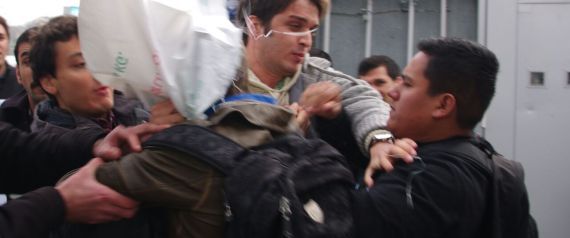I've learned a lot from my children. The number one piece of wisdom I learned from them is about the rights and wrongs in us. We really do not need any education to learn what they are. We easily know what we do wrong even before we do it, and you can confirm it by doing it. What's moral is what we feel good about after, and what is immoral is what we feel bad about after. When my children were little, not even a year old, when trying to do something they weren't supposed to do, they always looked at me before they took the action to see my reaction, such as eating a piece of chocolate before a meal or throwing a toy. They knew it was wrong without me telling them to stop.
I've also learned from them that knowing what's right is not enough to do the right thing. The right path and easy path are usually two different things, and when it's time to choose, we have a tendency to choose the easy one, even though we know it's not the right one. When it comes to relationships, while believing that good people are dying out, we still repeat the simple but golden rule from Confucius as a solution, "Treat others as you would like to be treated" to make the world a better place. After the nationalist Turkish Youth Union (TGB) group's attack on three American sailors in İstanbul, I watched the video by the TGB released on Nov. 12, 2014, and these were the thoughts that jumped into my head.
Even though I share the pain of the protesters about what happened in 2003, and the agony is still in my heart when remembering how 11 Turkish troops were taken hostage and their heads covered with bags, I still cannot sympathize with the inappropriate TGB action, because the context matters; and the way the TGB held the demonstration was very primitive and ugly. It wasn't much more than short-sighted harassment. Throwing objects or pushing an individual is not acceptable. Political action should be accompanied by responsible intellectual action.
Apparently, the soldiers in the video did not even realize the purpose of the demonstration at the time. It doesn't matter how objective those watching are and how right the motive for demonstration was, as this memory will live in our minds as a disgraceful incident. The demonstrators should have made it clear that the target was not "the soldier on the street" but American military and financial imperialism. If they were able to hold the action in a more sophisticated way, not only would people in Turkey have supported their action, so would have many here in the U.S. However, this way all the TGB could accomplish was just terrorizing an American youth who was trying to make his living.
Apparently, they planned the action in detail. They used the red paint to symbolize blood, and the sacks over the soldiers' heads were apparently a reference to the incident in 2003. However, their attitude made the action no more than an assault on the unsuspecting sailors. This way, the action only made people uncomfortable in Turkey and in the U.S.
"[This is the result of] too much watching 'Kurtlar Vadisi' [Valley of the Wolves] [a hyper-nationalist TV series]," Salih Yılmaz commented humorously in İstanbul.
"It's a very primitive demonstration. I thought the TGB was able to do a more sophisticated action than this," Bülent Akpınar said bitterly in İzmir, expressing his disappointment.
"This incident showed once more that the problem is we don't have a conscience in influential civil organizations," Gökay Şimşek declared in Ankara.
The reactions are not much different from the Turkish community in the U.S. either. They think the reason for the demonstration was acceptable; however, the way it was done was disgraceful.
"In an appropriately put context, this could've been a very positive political action, such as the milestone protests against the U.S. 6th Fleet [the proper warnings against the soldiers who were about to set foot on Turkish soil and the political motivation thereof were announced before those protests in 1968]," said Caner Güçlü from Irvine, California.
"The context in which it was done should not be left out. The ethics of the demonstration is not cool. On the other hand, it was effective in making it to the U.S. media at lightning speed," İlknur Demirkopan from California said, adding, "But yes, I hope that they at least whispered in the ears of their bagged captives that this was just a protest and they're safe."
It was ironic to hear that the first question about the demonstrators in the American media was whether they are related to the Islamic State in Iraq and Syria (ISIS) extremist terrorist group, while the demonstrators were crying out that they are Kemalists, the modern face of Turkey! I think many people struggle to see the connection between the concept and the action, too.
"It's confusing though, although CNN calls them 'anti-government,' are these what we might call nationalist -- anti-Kurdish, super-Kemalist? Seems that way," pointed out George Murer from New York.
Actually, it really does not matter who did the action, what matters is whether the action was right. If we recall simple ethical rules, wrong is wrong whoever does it. When you have the right to demonstrate, it doesn't mean that you are right however you do it. Freedom is not the choice to do whatever you want; it is the strength of character to do what is right. We all need to realize that. Yes, our American friends who felt furiously disturbed by the incident and started howling that the U.S. has to stop seeing Turkey as an ally in the Middle East or dismiss Turkey from NATO should see the big picture once again, too!
To read more Arzu Kaya-Uranli click here.
